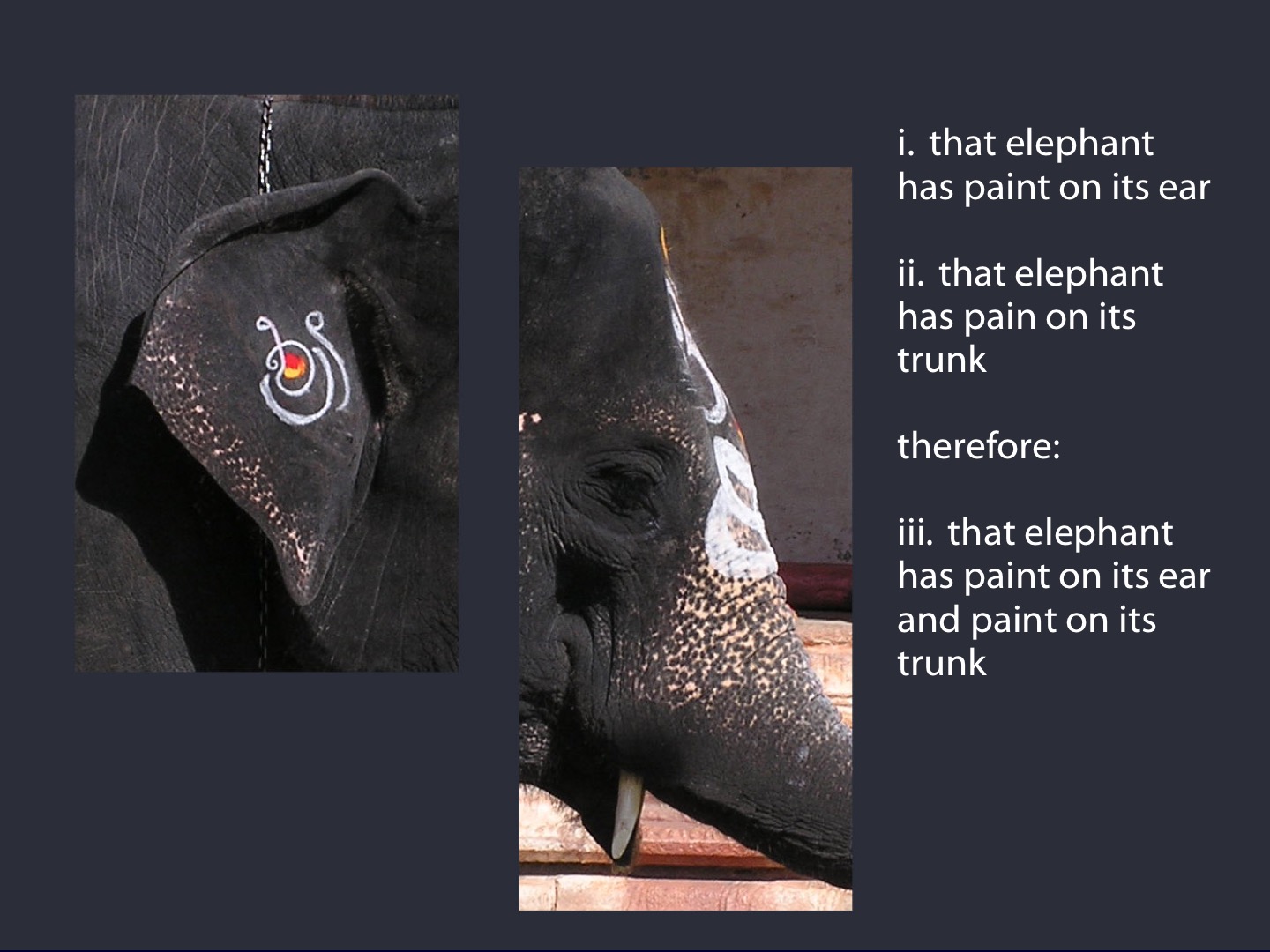Click here and press the right key for the next slide (or swipe left)
also ...
Press the left key to go backwards (or swipe right)
Press n to toggle whether notes are shown (or add '?notes' to the url before the #)
Press m or double tap to slide thumbnails (menu)
Press ? at any time to show the keyboard shortcuts
Trading on Identity
Are senses descriptions?
Andrea is in her office speaking on the telephone to her friend Ben. As she looks out of the window, Andrea notices a man on the street below using his mobile phone. He’s not looking where he’s going; he’s about to step out in front of a bus. Andrea does not realise that this man is Ben, the friend she is speaking to. She bangs the window and waves frantically in an attempt to warn the man, but says nothing into the phone.
adapted from Richard, 1983 p. 439

He [‘the man on the street’] is in danger.
∴ He [‘the man I am speaking with’] is in danger.
valid-1 = the premises cannot be true unless the conclusion is true
valid-2 = knowledge of the premises suffices for knowledge of the conclusion
Sense is that which determines whether
such inferences are valid-2
(Campbell, 1992).



Are senses descriptions?